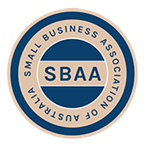In store music
Music played out loud in a store, music played in a salon, music played in a waiting room, music played in a treatment room is legally different to music at home. A business needs permission - a licence - for use of OneMusic’s catalogue of music. A licence is as important as music volume, choice of speakers, streaming service or music device.
The Retail and Service Providers scheme is designed for our background music used in premises selling goods or those selling professional and personal services to the public. This includes product retailers such as a fashion stores, newsagents, convenience stores, homewares stores or stationers. It also is designed for service businesses such as hair and beauty salons, masseurs and physiotherapists and retailers and businesses who sell goods and services such as a motor dealer or an optometrist.
To save you time, the scheme also provides cover subject to additional fees for telephone on hold music, showing music videos, music on your website, featured music and workplace music. Learn more about how the licence fee for this scheme was set.
Playing music in-store can be as important as how you display your products, the lighting you choose and your store fit-out. Music has a profound effect on customer behaviour, keeping people in-store longer and improving the customer experience.
Get a simple & quick online quote if you need a licence for 1-5 locations:
If you have 6 or more locations, please complete and download your licence agreement, then contact us at getalicence@onemusic.com.au:


Do I need a licence to play music in public places?
If you play music protected by copyright out loud in a public place for a commercial purpose such as a shop, a gym or a bar you need permission or you need to purchase a music licence. Legally this music use is different to playing music at home or in your car. This is called public performance of music.
What is the cost of a music licence for businesses?
How can I legally play music in my business?
Your business can legally play music protected by Copyright by getting permission first. Permission can be from OneMusic Australia in the form of a licence for millions of songs in its catalogue, from the artists themselves for every song, through a background music supplier or other means. You need permission or a licence when your stream music in your business.
What happens if I don't take out a licence?
If you want to play and enjoy the use of virtually any commercially released music from anywhere around the world, you should immediately enter into a OneMusic Australia licence, because using OneMusic Australia’s music without a OneMusic Australia licence can constitute an infringement of our copyright which, if not rectified, may ultimately lead to legal action.
Of course, we will happily talk with you about your music licensing and certainly provide a reasonable time frame for you to take out a licence before escalating the matter any further.
But, if our music continues to be used without permission, then we will be left with no option but to enforce our rights on behalf of our members and affiliates, which could involve court proceedings. Such action may result in the business having to pay the licence fees as well as other damages and legal costs.
Over 95% of businesses and organisations that we deal with are readily compliant.
How much is a music licence?
Is it the performer or the venue that needs the licence?
OneMusic does not generally licence individual or group live performers such as bands and DJ's. It is the venue or the event organiser who needs to obtain a licence for public performance.
Performers may still need permission for copying
A performer may require licensing for any reproductions they are considering such as photocopying sheet music, videoing their performance, copying CDs onto a laptop.
DJ Alliance have signed an agreement with ARIA and AMCOS to cover their physical and digital copies of music. This agreement covers their members starting from 1 July 2019.
Outside this arrangement:
- Reproduction, Domestic Video Licence & Online queries
- ARIA Reproduction Licence queries
- PPCA Webcast licensing queries
OneMusic licenses performers who are part of a Community Music Group.
